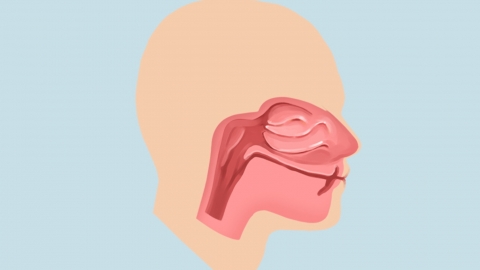Which Types of Nosebleeds Require Caution?
Generally, nosebleeds that require attention include those with heavy and difficult-to-stop bleeding, frequent recurring bleeding, systemic symptoms, persistent unilateral bleeding, and recurring bleeding in children. If any abnormalities occur, it is recommended to seek medical help promptly. Detailed explanations are as follows:

1. Heavy and difficult-to-stop bleeding: A large amount of blood flows out of the nasal cavity within a short time. Conventional hemostatic methods such as pressing the nostrils and applying cold compresses for more than 15 minutes still fail to stop the bleeding. Continuous blood flow may even cause discomfort such as dizziness and palpitations. This situation may be caused by rupture of larger blood vessels inside the nasal cavity or severe coagulation dysfunction. Delayed treatment can easily lead to hemorrhagic shock.
2. Frequent recurring bleeding: Nosebleeds occur multiple times within a certain period, with short intervals between episodes. Even if the blood loss during each episode is not significant, frequent bleeding indicates uncontrolled local nasal lesions or systemic diseases, such as nasal polyps, deviated nasal septum, or hematologic diseases and liver or kidney diseases affecting coagulation function.
3. Accompanied by systemic symptoms: Nosebleeds accompanied by skin bruising, gum bleeding, fever, joint pain, pale complexion, and other symptoms could indicate hematologic diseases, immune system disorders, or serious infections, requiring urgent investigation of the underlying cause.
4. Persistent unilateral bleeding: Bleeding occurs only in one nasal cavity and does not improve over a prolonged period, or is accompanied by nasal congestion, reduced sense of smell, or a sensation of a foreign body in the nasal cavity. This situation may be caused by nasal cavity tumors or malignant lesions of the nasopharynx, where tumor erosion of blood vessels leads to bleeding. A professional examination is required for a definitive diagnosis.
5. Recurring nosebleeds in children: Children have relatively fragile nasal mucosa. However, if nosebleeds recur frequently, especially without obvious triggers, or are accompanied by persistent nose-picking habits or snoring during sleep, it may indicate abnormal nasal structure, allergic rhinitis, or even blood disorders, which should be taken seriously.
Once any of the above concerning nosebleed situations occur, immediate medical attention at a hospital is necessary to determine the underlying cause through examinations such as nasal endoscopy, complete blood count, and coagulation function tests.








